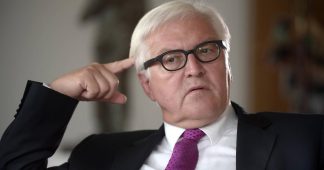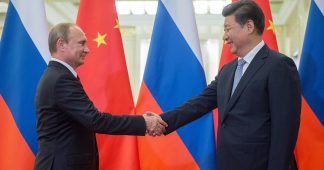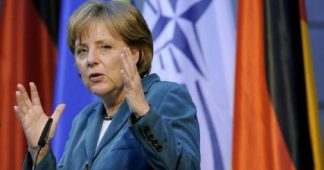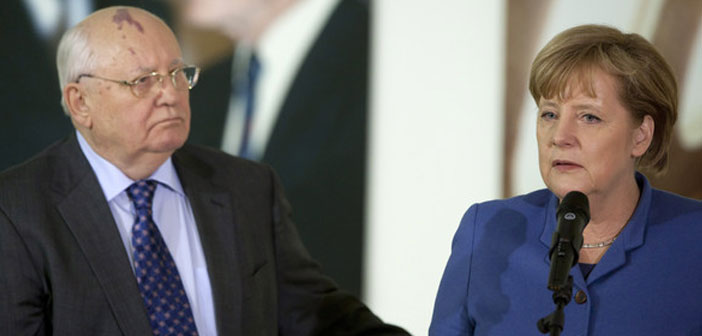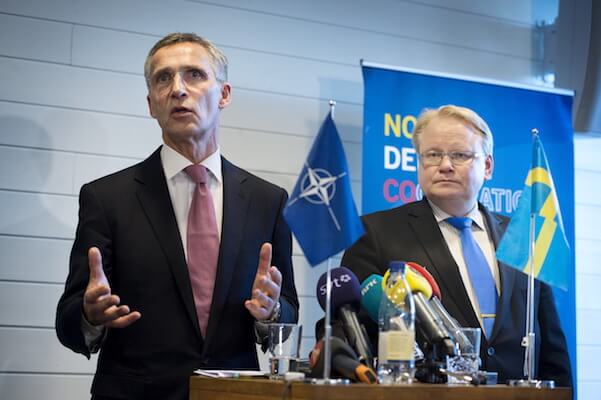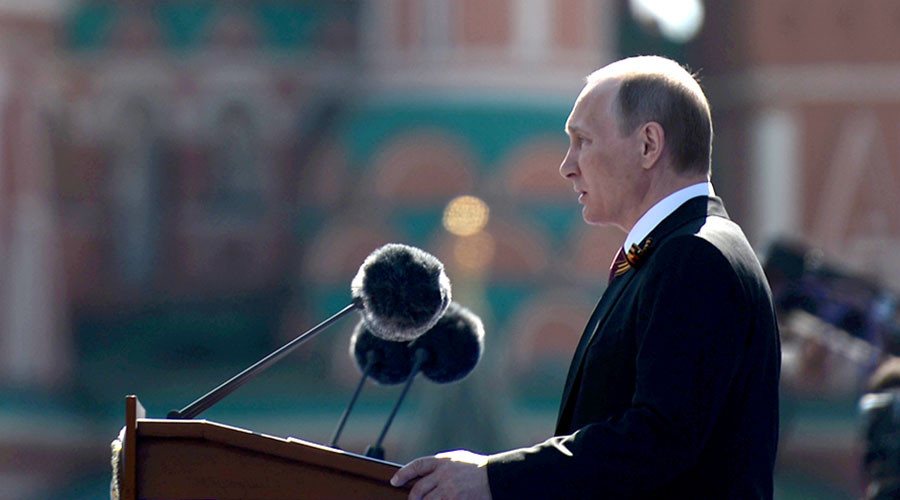Civic and religious leaders in Germany are spearheading a new initiative to avoid war between Russia and the West.
A transatlantic appeal for a new policy of détente with Russia has been launched. The declaration’s authors invite the general public to join leading political figures and social activists who have publicly rallied to support the call.
The initiative was born in Berlin several months ago in the days of deepest gloom engendered by confrontation with Russia over Ukraine, the Baltic countries, and Syria, with major war exercises held around Russia’s borders and bellicose language from both sides that suggested imminent hot war. As German Minister of Foreign Affairs Frank Walter Steinmeier (SPD) said in an interview with Bild newspaper on October 8, present times are more dangerous even than during the Cold War that ended in 1990: “Previously, the world was divided, but Moscow and Washington knew each other’s red lines and respected them. In a world with many regional conflicts and dwindling influence of the great powers, the world becomes more unpredictable.”
The roll-out of the initiative called Détente Now aims at bringing civil society on two continents into play both to enforce and to support approaches to pursue dialogue and compromise with Russian counterparts, e.g., on confidence- and security-building measures between Russia and its neighbors. Détente Now will be a powerful voice for change of direction in foreign policy within Europe, and within Germany in particular, as it and several other key EU countries have their national elections in the course of 2017.
In the United States, the word “détente” brings to mind the efforts of former presidents and secretaries of state to control and reduce strategic weapons and to find ways of cooperation instead of confrontation. In Germany, the equivalent policy, Entspannungspolitik, was crafted in the 1970s by Chancellor Willy Brandt and his close adviser Egon Bahr. Their “Eastern Policy” promoted rapprochement as a means of gradually changing the behavior and views of the opposing side. It is widely believed to have facilitated the eventual fall of the Berlin Wall and end of the original Cold War.
The Détente Now declaration specifically seeks implementation of the twin objectives of a “Europe whole and free” and a common space of peace and security extending from Lisbon to Vladivostok. That vision of all-European security set out in the Charter of Paris signed in 1990 by all European states and the institutionalization of the Organization for Security and Cooperation in Europe in Budapest in 1994, was predicated upon respect for human rights and liberties, and upon equal security provisions for all. Regrettably, in the 1990s this grand vision was replaced by political and security schemes that left Russia out in the cold: the greater European Union and an expanded NATO. The result has been nearly calamitous, the authors of Détente Now believe.
The declaration was initiated by a few concerned citizens of civil society, churches, and science, including Wolfgang Biermann (former adviser to Egon Bahr), Peter Brandt (historian), Konrad Raiser (former secretary general of the World Council of Churches), Reiner Hoffmann (chairman of the German Trade Unions Federation), and Horst Teltschik, (former head of Chancellor Kohl’s office and 1999–2008 director of the Munich Security Conference), as well as, from the United States, Daniel Ellsberg (longtime advocate for an informed citizenry).
Many people from the United States, Germany, and other countries support the declaration in the wake of the American presidential election as a transatlantic appeal for a new policy of détente. Among the key first signatories in Germany are well-known Bundestag members from the SPD party, recently joined by a growing number of Green deputies, as well as city mayors, scientists, artists, and journalists. In the United States, the declaration has won the support of several board members of the American Committee for East West Accord, the Nuclear Age Peace Foundation, the Association of International Physicians for Prevention of Nuclear War, Veteran Intelligence Officials for Sanity, and of celebrities from the film and music industries, among them Roger Waters (founding member of Pink Floyd) or David Kasper (an Academy Award–winning filmmaker).
Starting this month, the declaration will be published on various homepages, and public collection of more signatures of support will start. A German version can be found here, with an English version here.
The Initiative “neue Entspannungspolitik jetzt!” / “DetenteNOW!” will open a German- and English-language portal to make available literature relevant to the cause. Supporters of the declaration also propose to organize round-table discussions both in Europe and in the United States, and to set up direct US-German-Russian and other exchanges of civil society activists who support the initiative.
